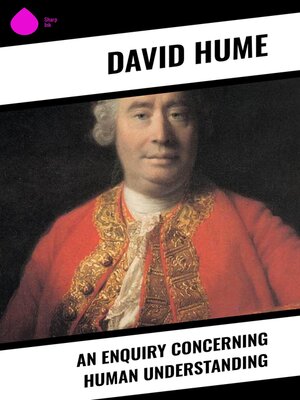
Sign up to save your library
With an OverDrive account, you can save your favorite libraries for at-a-glance information about availability. Find out more about OverDrive accounts.
Find this title in Libby, the library reading app by OverDrive.



Search for a digital library with this title
Title found at these libraries:
| Library Name | Distance |
|---|---|
| Loading... |
In "An Enquiry Concerning Human Understanding," David Hume meticulously explores the nature of human cognition, emphasizing empiricism and skepticism in the pursuit of knowledge. This work, notable for its engaging prose and clarity, questions the limits of human reason, tackling concepts such as causality, induction, and the reliability of human perception. Hume's literary style is accessible yet profound, allowing for a nuanced understanding of complex philosophical issues, while situating his argument within the broader 18th-century Enlightenment context, marked by a shift toward empirical investigation and scientific reasoning. David Hume, a central figure in Western philosophy, was deeply influenced by the works of John Locke and René Descartes, yet he diverges significantly in his insistence on the limitations of human understanding. Hume's reflections on human psychology and morality stem from his rich background in both philosophy and history, leading him to grapple with the implications of philosophical skepticism and the nature of human experience. His synthesis of diverse philosophical traditions culminates in this essential work, which seeks to demystify how humans acquire and comprehend knowledge. Recommended to readers seeking a rigorous examination of epistemology and the foundations of human understanding, Hume's "An Enquiry Concerning Human Understanding" serves as both an intellectual challenge and a catalyst for deeper philosophical inquiry. Its insights resonate today, making it an indispensable addition to the library of anyone interested in the complexities of human thought.







